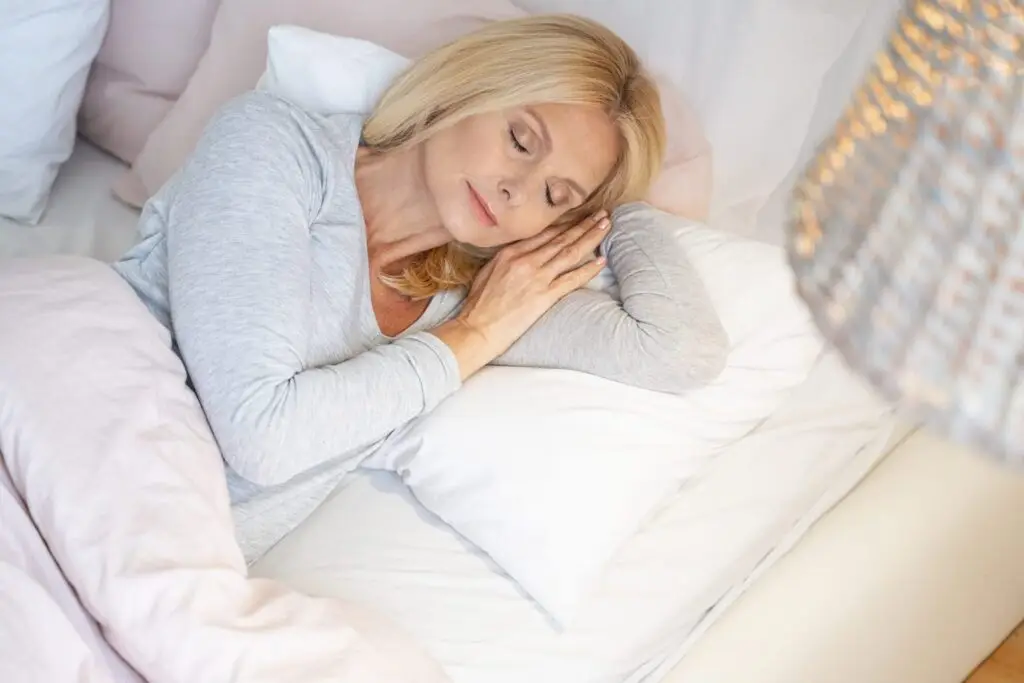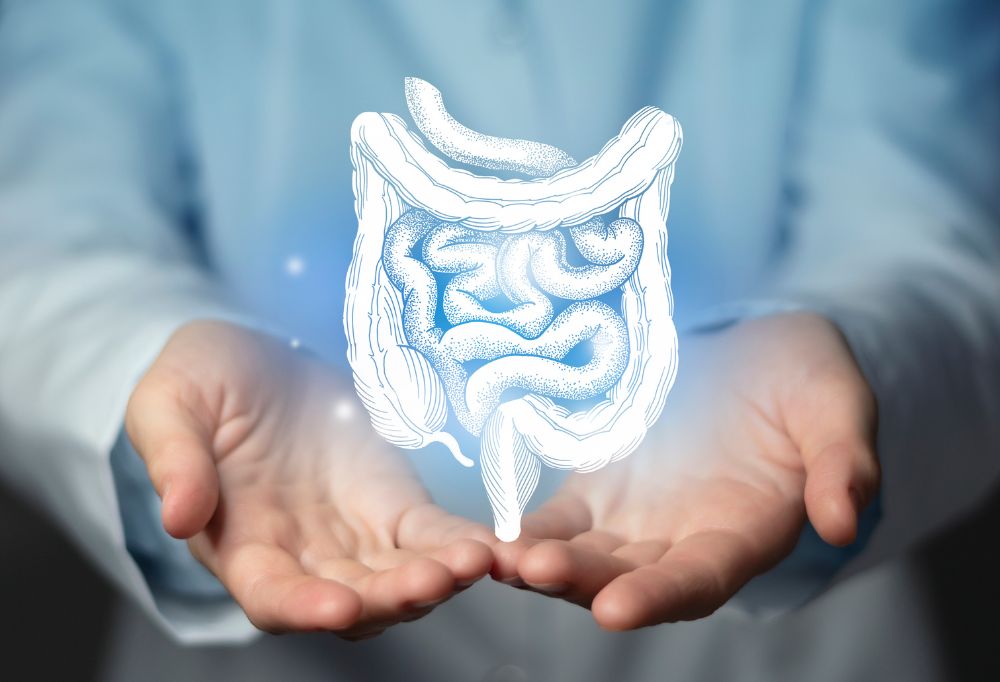Reviewed by Leigh Ann Scott, MD of Forum Health Las Colinas
Getting a good night’s sleep is crucial for good health and wellbeing. As women begin to age, their hormone levels fluctuate which can adversely affect their sleep. During the childbearing years, estrogen and progesterone levels fluctuate each month. Estrogen prompts the uterus to grow a lining and prepare for possible pregnancy. As a woman ovulates, her body produces progesterone, which stops the uterine lining from being shed because it may be needed for pregnancy. If a woman does not become pregnant, progesterone levels drop which allows the uterine lining to shed, causing a woman to have her period. This cycle repeats itself approximately every twenty-eight days.
Most women in their forties will enter the stage of life known as peri-menopause. Some even begin to experience this during their thirties. This phase usually lasts three to five years, however, it is not uncommon for it to last up to ten years. Estrogen and progesterone levels will begin to fluctuate. Periods may become irregular. As a woman enters menopause, ovulation stops all together, and estrogen and progesterone levels stop cycling and remain low. (Women are officially menopausal when they have not had a period for twelve consecutive months.)
When hormones are out of balance, women may begin to experience problems with:
- Nervous system
- Immune system
- Digestion and bloating
- Thyroid levels
- Mood, including irritability and increased anxiety
- Decreased libido
- Skin (acne and other issues)
- Joint aches
- Blood vessels (which can cause hot flashes, night sweats, and migraines)
- Metabolism (decreased insulin production, weight gain around the middle body)
- Cortisol level changes which can affect how stress is managed
- Sleep disturbances
Sleep problems are one of the most common and debilitating issues that women can start to experience in peri-menopause, and continue well into menopause. This is, in part, caused by low progesterone levels.
Not being able to sleep is critical; it can cause loss of memory, irritability, and make it hard to function in day to day life. Women can start to feel exhausted, both mentally and physically, and experience “foggy” thinking throughout the day. Often, when women see their doctors, sleep medications are prescribed. However, these do not deal with the underlying cause of insomnia, which is low progesterone levels. Many women can get addicted to sleeping pills, in an attempt to get better sleep, which have side effects such as feeling sluggish the next day. Additionally, when taking sleeping pills, restorative REM sleep is not usually achieved so the body is unable to restore and heal itself like it is supposed to during natural sleep. This can affect many different biological processes and cause secondary issues such as:
- Cardiovascular health issues
- Depression
- Heightened anxiety
- Chronic fatigue
- Fibromyalgia
- Sleep apnea
- Weight gain
A 2017 survey completed by the CDC (Centers for Disease Control) established that 56% of peri-menopausal women sleep less than seven hours a night. It also showed that 55% of menopausal women are sleeping poorly, enough to wake up not feeling rested, four or more times per week.
Women already face some challenging times during mid-life which can significantly increase stress levels. Demanding careers, empty nest syndrome, caring for aging parents and maintaining jam packed schedules also rob women of their peace of mind. The addition of hormonally induced insomnia only increases the difficulty in managing these stressors.
Fortunately, there is hope and help for better, natural sleep which will protect your health, help you maintain a better quality of life, improve relationships and keep you sharp mentally! Establishing progesterone balance can quickly lead to normal and refreshing sleep again. Some women report improvements after only two doses.
Progesterone is known as Mother Nature’s valium because it provides calmness and relaxation. It can be administered orally, vaginally or through a cream applied on your skin. Progesterone is also classified as a neurosteroid; it stimulates normal brain processes and helps the nervous system to function properly. It eases anxiety and promotes memory. Doctors recommend that Progesterone be taken before bed since it has a sedative effect and helps resume normal sleep cycles.
It is important to note that Progesterone is a bioidentical hormone, and not a drug treatment. A bioidentical hormone replenishes the chemicals naturally made in your body. Conversely, progestin is a synthetic hormone with a different molecular structure than Progesterone. It does not metabolize the same compounds, has no benefits of calming, anti anxiety or sedative properties, and does not have any progesterones in its makeup. The most common progestin prescribed when using synthetic hormone replacement therapy is MPA, or Medroxyprogesterone Acetate, which has been found to have negative effects on the nervous system and even reduces the beneficial effects of biodentical hormone replacement therapies.
Bioidentical hormones, such as Progesterone, are identical in molecular structure to the hormones women are in their bodies. In fact, the body can’t distinguish bioidentical hormones from the ones that your ovaries produce. (footnote – Harvard Health Publishing, 2006)
Fortunately, help is available to achieve hormone balance and natural, restful sleep. For testing and treatment, see a qualified health care practitioner that specializes in BHRT (bioidentical hormone replacement therapy).
Additionally, create healthy lifestyle habits to insure quality sleep:
- Try to go to bed and get. up in the morning at the same time to establish regular sleep cycles.
- Sleep in a cool, dark room
- Avoid caffeine in the late afternoon and evening hours
- Eat your last meal of the day at least three hours before bedtime
- Avoid heavy exercise at least three hours before bedtime
- Do not eat foods with heavy sugar content, especially in the evenings
- Avoid excessive alcohol intake






